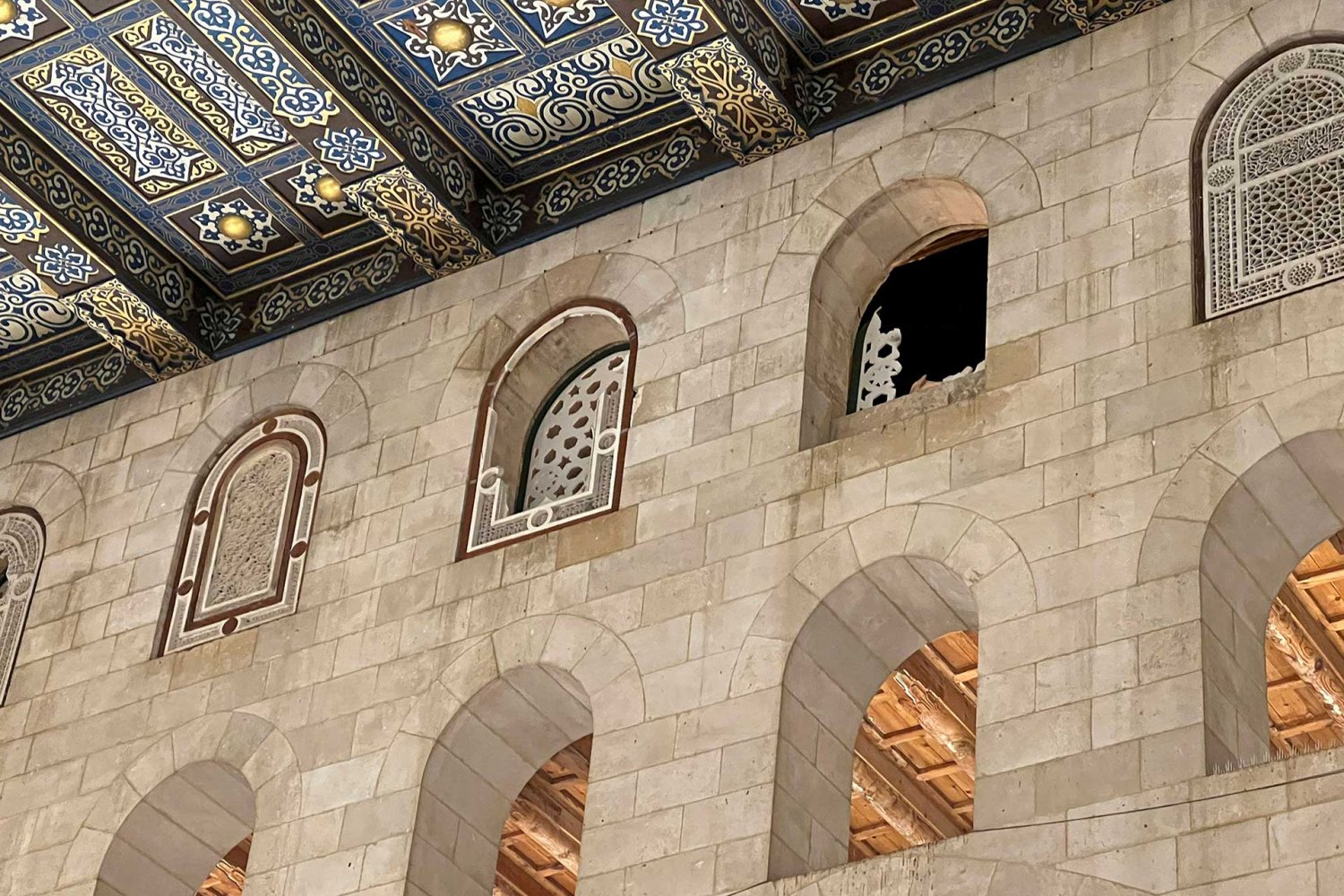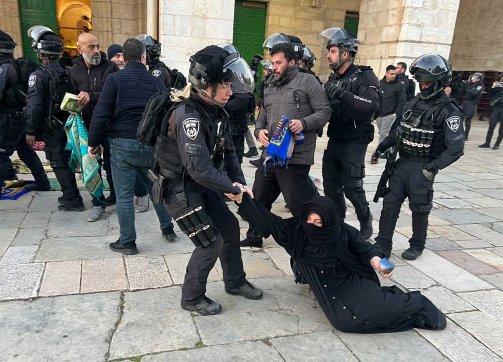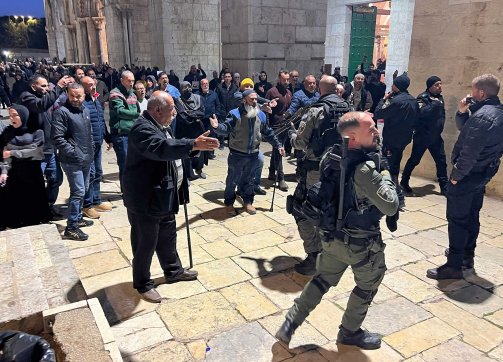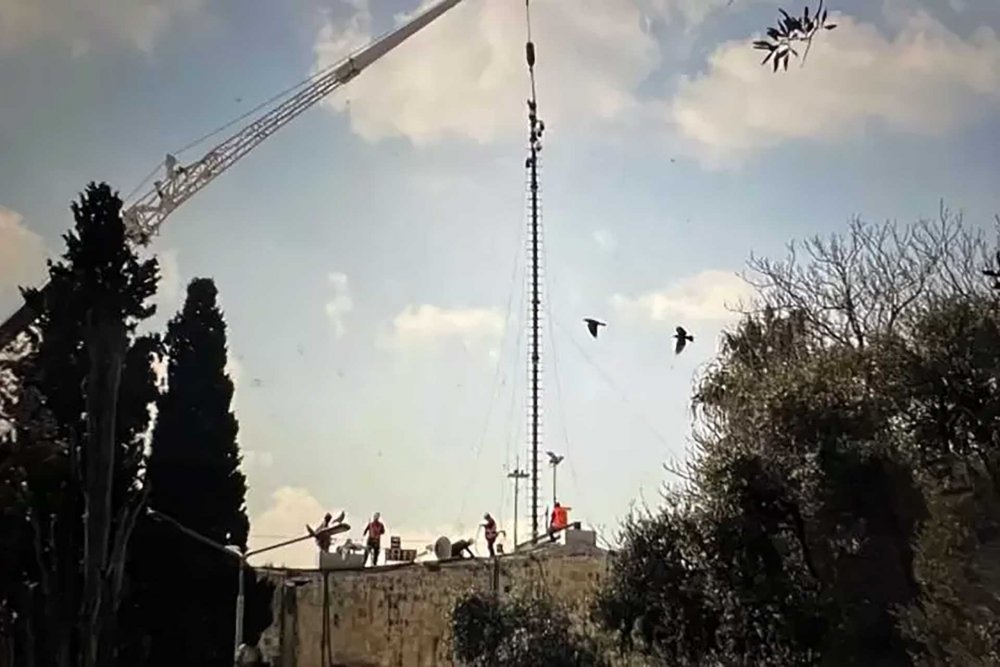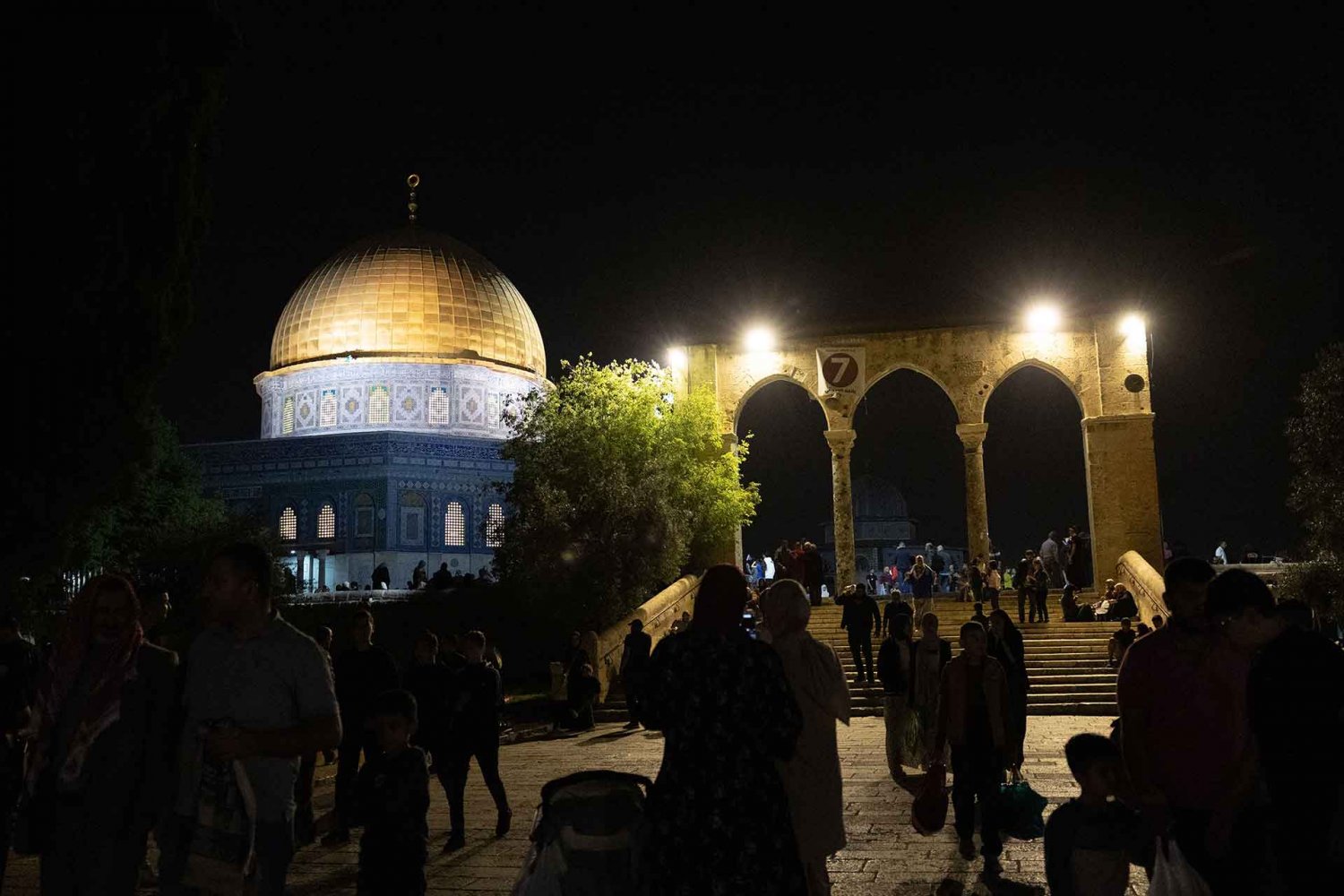Murad Saadallah, 29, did not understand why the Israeli police were calling him over recently. When he approached them, he was told that an order had been issued banning him from entry to al-Aqsa Mosque for a week, and that the order would be reviewed after that week. If it turned out that his behavior was positive, the police might allow him to enter the mosque. If not, they would ban him from entering the mosque for the entire month of Ramadan, they said.1
Another Palestinian Jerusalemite, Louay, told Jerusalem Story that he did not know why he had been banned from entering al-Aqsa Mosque. His ban, more than four months ago, appears to have been a belated punishment for having practiced the ritual of i‘tikaf during Ramadan last April. At the time, Israeli police stormed the Qibli Mosque overnight, arresting hundreds of Palestinians, injuring a dozen, and wreaking havoc. “I was there overnight when Israeli police stormed the mosque last year. We were not interrogated, but we were savagely beaten before we were released; we were never given a reason,”2 he explained.

